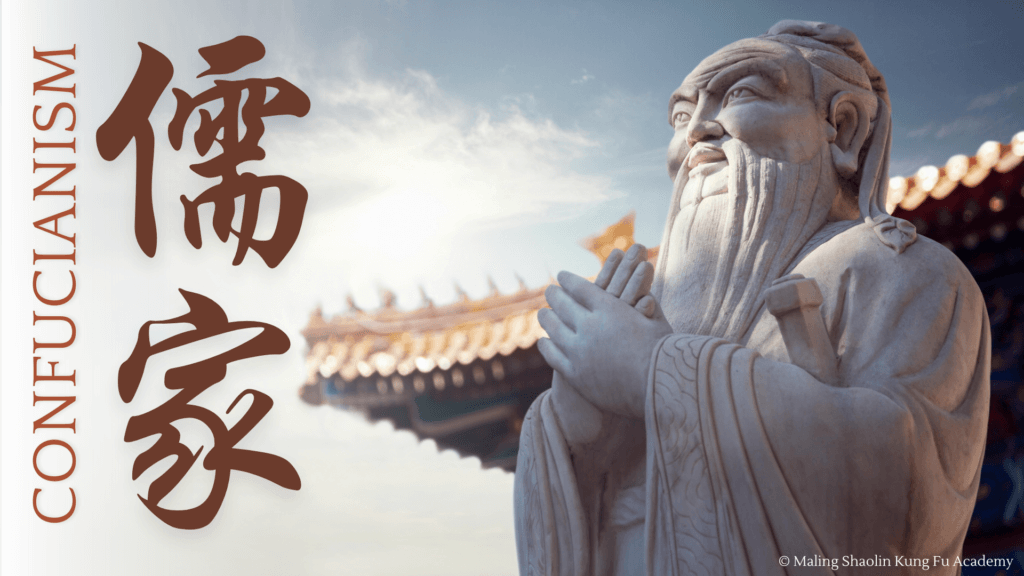
Confucianism, named after the philosopher Confucius (551–479 BCE), is a cornerstone of Chinese culture, shaping its social structure, political philosophy, educational system, and ethical thought for over two millennia. Rooted in ancient traditions and values, Confucianism emphasizes harmony, respect for hierarchy, filial piety, and the cultivation of virtue. This article explores the historical development of Confucianism, its key teachings, its impact on Chinese society, and its relevance in modern China.
Historical Development
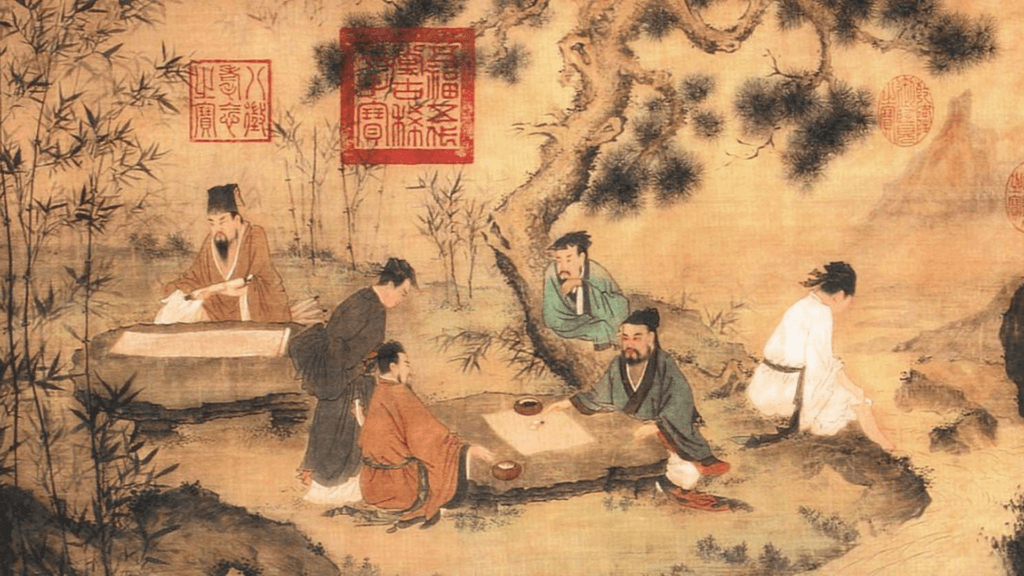
Origins and Early Influence
Confucius, known as Kongzi (孔子) in Chinese, lived during the tumultuous Spring and Autumn period. Disturbed by the moral decay and social chaos of his time, he sought to restore order through the revival of ancient rites and virtues. His teachings, compiled by his disciples in the Analects, stressed the importance of personal and governmental morality, proper conduct, and social relationships.
Han Dynasty and Institutionalization
Confucianism gained prominence during the Han Dynasty (206 BCE – 220 CE), when it was adopted as the state ideology. Emperor Wu of Han established Confucianism as the official doctrine, founding academies and promoting the study of Confucian classics. This institutionalization of Confucianism shaped the bureaucracy, as the civil service examination system, based on Confucian texts, became the primary means of selecting government officials.
Tang and Song Dynasties – Neo-Confucianism
During the Tang (618–907) and Song (960–1279) dynasties, Confucianism underwent a renaissance with the emergence of Neo-Confucianism. Thinkers like Zhu Xi and Wang Yangming synthesized Confucian, Buddhist, and Daoist ideas, emphasizing metaphysics, moral philosophy, and the cultivation of the mind. Neo-Confucianism dominated Chinese intellectual life and education, further entrenching Confucian values in society.
Key Teachings and Concepts
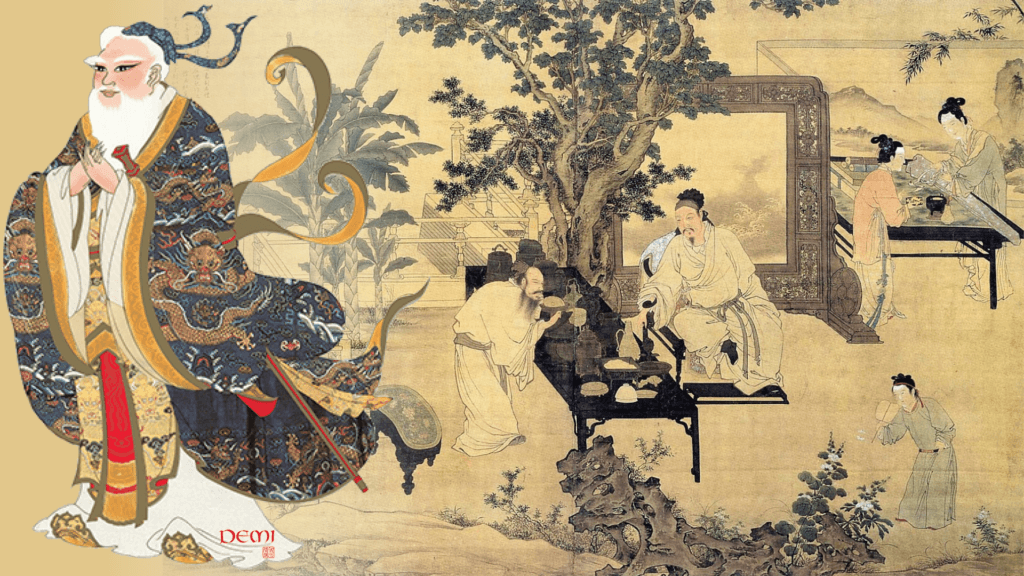
仁 (rén) – Benevolence, Humanity:
Ren, often translated as benevolence or humanity, is the foundational virtue of Confucian ethics. It represents an altruistic love and compassion for others, promoting kindness and empathy in all human relationships. Confucius emphasized that ren is essential for creating a harmonious society, as it fosters mutual respect and understanding.
义 (yì) – Righteousness, Justice:
Yi denotes the principle of righteousness and justice. It involves acting in a morally right manner, often at a personal cost, and ensuring fairness in all dealings. Confucius taught that yi should guide one’s actions, especially in public and social life, to maintain moral integrity and societal order.
礼 (lǐ) – Propriety, Ritual, Etiquette:
Li refers to the proper conduct, rituals, and social etiquette that govern behavior. It encompasses ceremonies, traditions, and everyday manners that express respect and maintain social harmony. Confucius believed that adherence to li was crucial for sustaining social order and reflecting inner moral values through external actions.
智 (zhì) – Wisdom, Knowledge:
Zhi stands for wisdom and knowledge, emphasizing the importance of learning and understanding. In Confucianism, wisdom is not just about intellectual prowess but also involves moral discernment and the ability to make sound judgments. It encourages continuous self-improvement and the pursuit of knowledge for the betterment of oneself and society.
信 (xìn) – Trust, Faithfulness:
Xin signifies trust and faithfulness, highlighting the importance of honesty and integrity in relationships. It involves being reliable and keeping one’s promises, fostering trust and mutual respect within the community. Confucius regarded xin as essential for building strong and lasting social bonds.
勇 (yǒng) – Courage, Bravery:
Yong represents courage and bravery, particularly the moral courage to stand up for what is right. It involves the strength to face challenges and adversities with integrity and resolve. Confucianism values courage as a virtue that supports righteous actions and ethical behavior.
恕 (shù) – Forgiveness, Tolerance:
Shu is the virtue of forgiveness and tolerance, promoting understanding and leniency towards others. It reflects the ability to empathize and be considerate, embodying the Confucian principle of reciprocity, often summarized by the Golden Rule: “Do not do to others what you do not want done to yourself.”
诚 (chéng) – Sincerity, Honesty:
Cheng denotes sincerity and honesty, emphasizing the importance of being genuine and truthful. It involves being true to one’s word and actions, fostering trust and authenticity in relationships. Confucius saw sincerity as a fundamental quality for personal integrity and social harmony.
忠 (zhōng) – Loyalty, Devotion:
Zhong stands for loyalty and devotion, particularly in the context of relationships and duties. It involves steadfastness and dedication to one’s family, friends, and country. Confucianism values loyalty as essential for maintaining social cohesion and fulfilling one’s responsibilities with fidelity.
孝 (xiào) – Filial Piety, Respect for Parents:
Xiao is the virtue of filial piety, emphasizing respect and care for one’s parents and ancestors. It highlights the importance of family and the duty to honor and support parents throughout their lives. Filial piety is a cornerstone of Confucian ethics, reflecting the broader value of respect for elders and family bonds.
悌 (tì) – Brotherly Love, Fraternal Duty:
Ti represents brotherly love and fraternal duty, stressing the importance of harmonious relationships among siblings and peers. It involves mutual support, respect, and care within the family and community. Confucius regarded ti as essential for cultivating a supportive and cohesive social environment.
Impact on Chinese Society
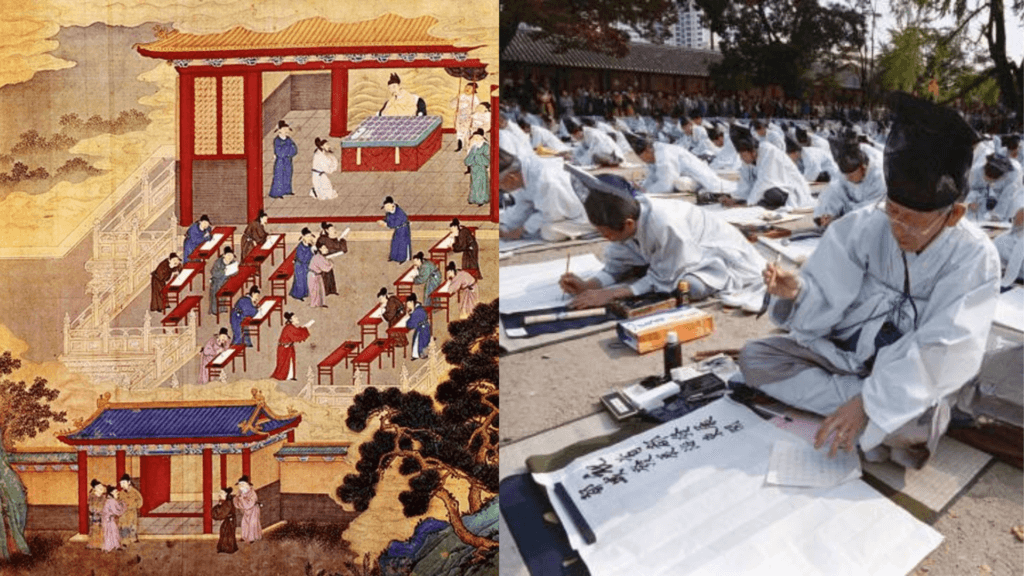
Social Structure and Family Life
Confucianism profoundly influenced Chinese social structure, emphasizing hierarchical relationships and respect for authority. The family, as a microcosm of the state, became the primary unit of society, with filial piety and ancestral worship playing central roles.
Education and Civil Service
Confucianism shaped the Chinese educational system, with a strong focus on moral education and the study of classics. The civil service examination system, based on Confucian texts, provided a meritocratic means of social mobility and ensured that government officials were well-versed in Confucian principles.
Political Philosophy
Confucianism provided the ideological foundation for Chinese governance, advocating for a benevolent and virtuous ruler who leads by example. The Mandate of Heaven, a concept integral to Confucian thought, justified the authority of the emperor while also imposing a moral obligation to rule justly.
Confucianism in Modern China
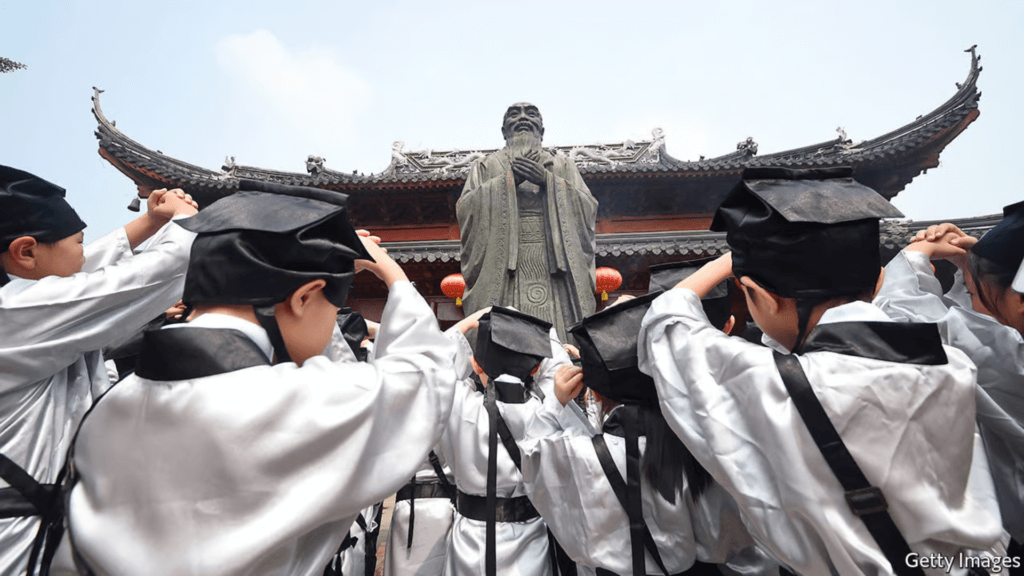
Cultural Revival and Critique
In the 20th century, Confucianism faced criticism from reformers and revolutionaries who blamed it for China’s ‘backwardness.’ However, in recent decades, there has been a revival of interest in Confucian thought, driven by a desire to reconnect with traditional values and address moral and ethical issues in contemporary society.
Government and Education
The Chinese government has promoted Confucianism as part of its cultural diplomacy and efforts to foster social harmony. Confucian institutes and academies have been established to promote the study of Confucian classics and values. Additionally, Confucian concepts such as harmony and respect for authority resonate with the government’s emphasis on social stability and unity.
Global Influence
Confucianism’s influence extends beyond China, impacting East Asian countries such as Korea, Japan, and Vietnam. Its emphasis on education, family values, and social harmony has shaped cultural practices and societal norms across the region.
Conclusion
Confucianism remains a vital and enduring aspect of Chinese culture, offering timeless insights into ethics, governance, and human relationships. As China navigates the complexities of modernity, the teachings of Confucius continue to inspire and guide individuals and society, fostering a sense of continuity and connection with the past. Whether in the realm of personal conduct, family life, or political philosophy, Confucianism’s legacy endures, shaping the moral fabric of China and contributing to its cultural and intellectual heritage.





